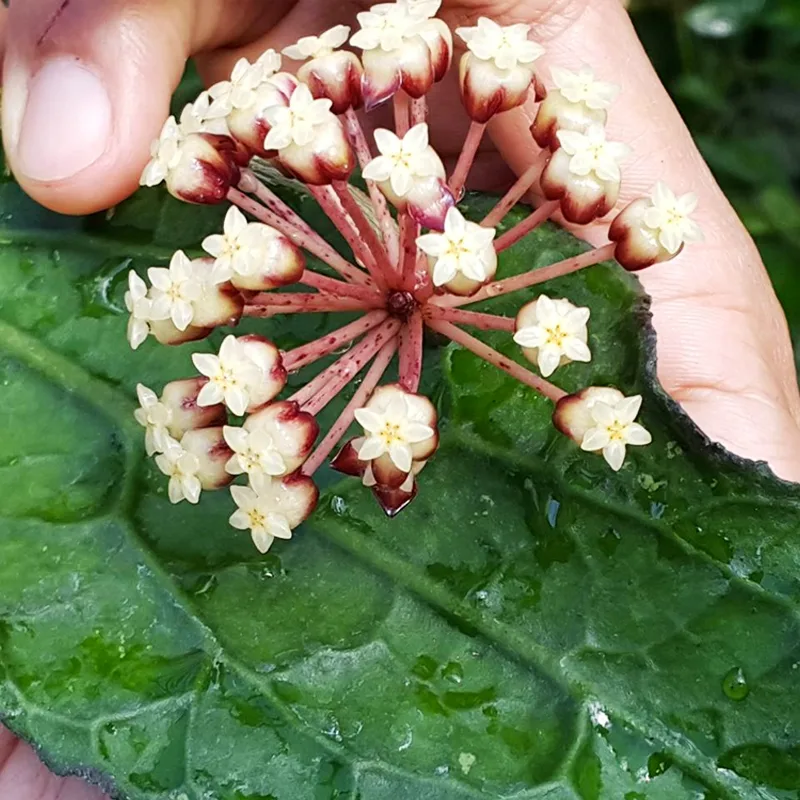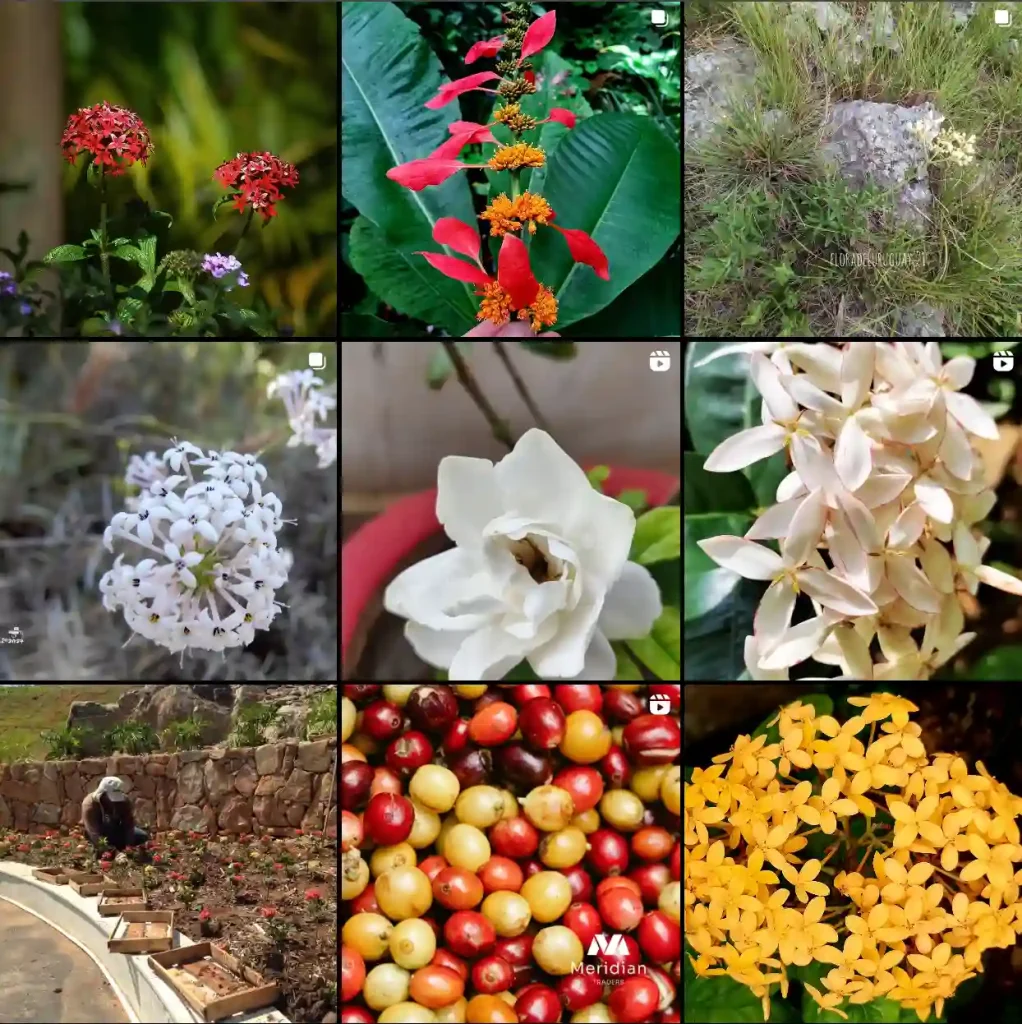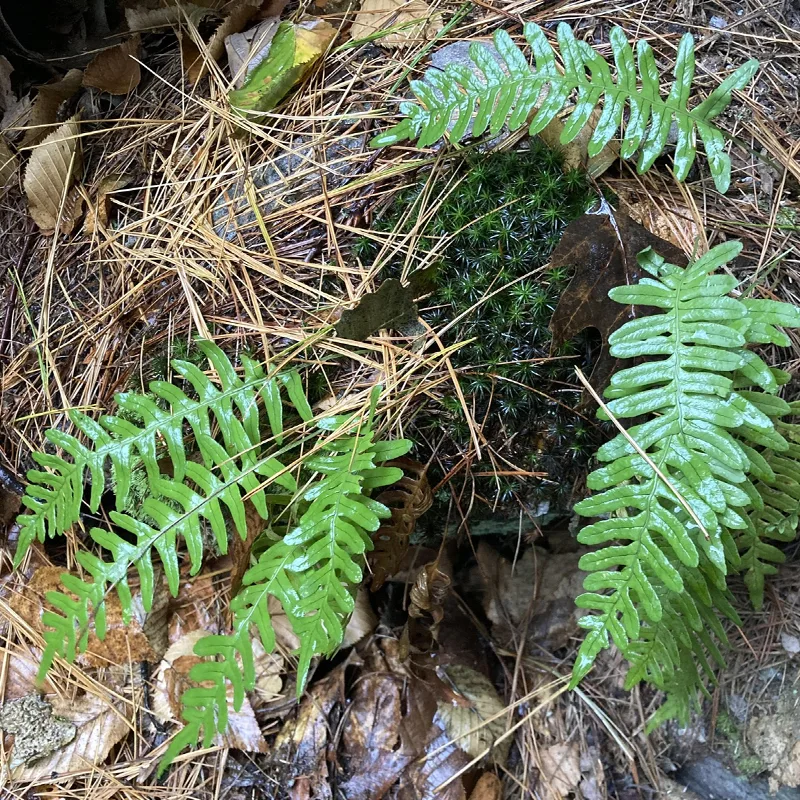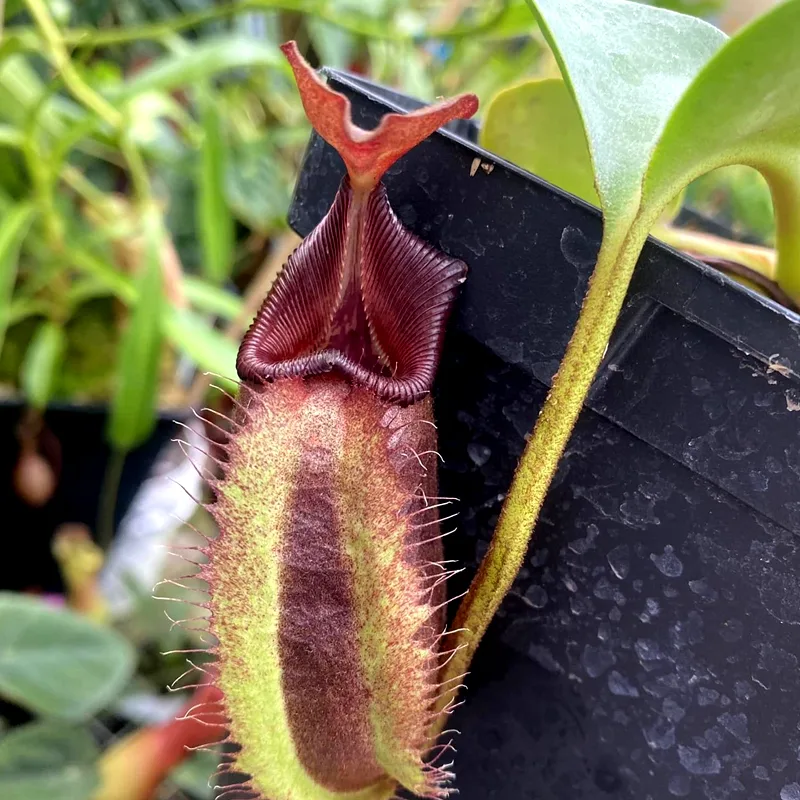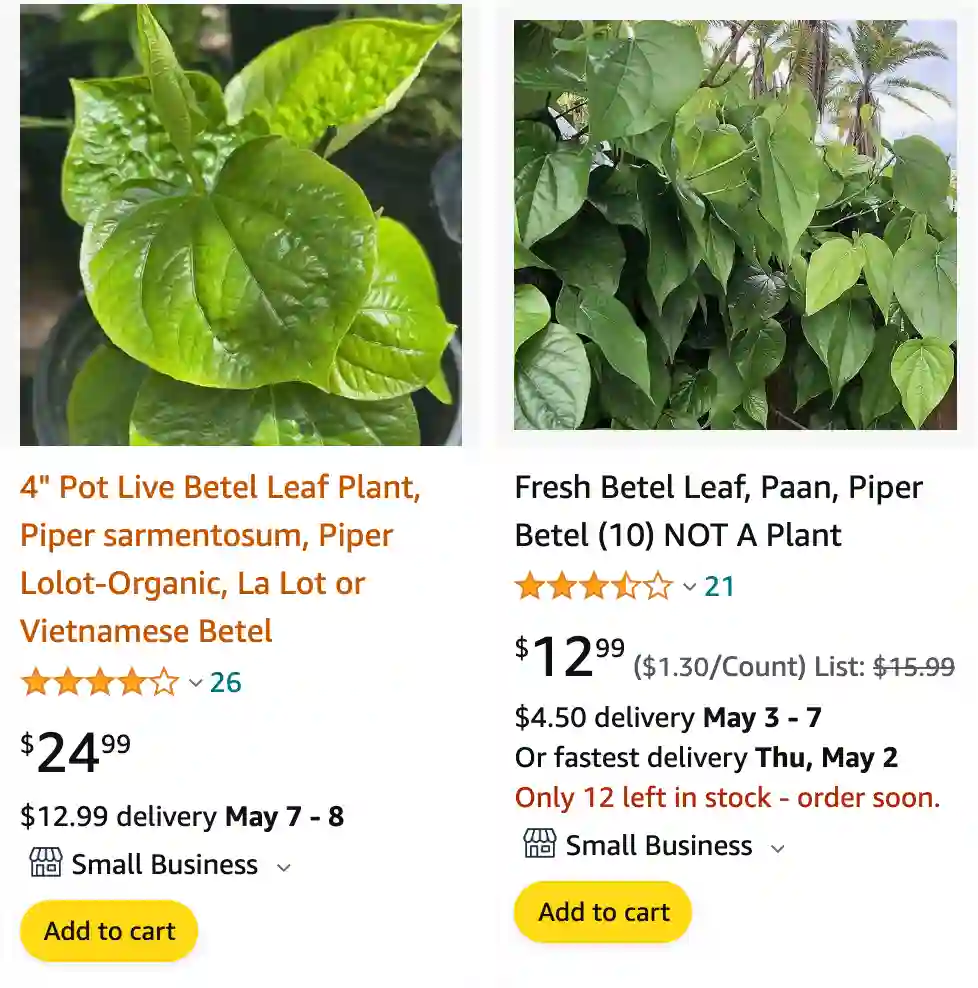
What is betel?
Betel is that thing offered at weddings and other Vietnamese gatherings. It’s those red-stained leaves I’ve seen the older ladies with red-stained teeth chew. My grandma used to chew it, and I remember the bitter, astringent smell it left lingering in her room. To be honest, I’ve never been tempted to try it; the whole process seems messy, and the idea of my teeth turning that color is enough to scare me off.
How to grow betel?
Betel (Piper betle) is a tropical vine, so it thrives in warm, humid environments. Here’s a general guide on how to grow it, but keep in mind that since you’re in Vietnam, betel should grow quite easily!
Ideal Conditions:
- Climate: Betel prefers tropical or subtropical climates with high humidity and temperatures between 65-85°F (18-30°C).
- Sunlight: Partial shade is best. Direct sunlight can damage the leaves.
- Soil: Well-draining, fertile soil that’s slightly acidic is ideal. Mix in compost or organic matter for richness.
Getting Started:
- Propagation: Betel is usually grown from cuttings. Take a healthy stem cutting with a few leaves and nodes (points where leaves emerge). Remove the bottom leaves.
- Planting: You have two options:
- Container: Use a deep pot with drainage holes. Dip the cutting in rooting hormone (optional) and plant it in the prepared soil.
- Directly in the ground: If your garden conditions are ideal, plant the cutting in a slightly shaded spot.
- Support: Betel is a vine, so provide a support structure like a trellis, pole, or wall for it to climb.
Care:
- Watering: Keep the soil consistently moist, but not soggy. Water deeply and allow the top layer to slightly dry out between waterings.
- Fertilizing: Feed with a balanced fertilizer every few months during the growing season.
- Pruning: Regularly prune your betel plant to manage its growth and encourage bushier foliage.
- Pests & Diseases: Betel can be susceptible to pests like mealybugs and fungal diseases. Monitor regularly and treat with appropriate measures if needed.
Additional Tips for Vietnam:
- You likely have a great climate for betel growing. Focus on providing well-draining soil and some shade.
- Ask other gardeners in your area about their methods. They could have variety-specific tips and local advice.
Where to buy betel leaves?
Since you’re in Vietnam, finding betel leaves should be pretty easy. Here are the places you can check:
- Local markets: Most traditional markets will have vendors specializing in fresh betel leaves (lá trầu). These are your best bet for finding quality leaves.
- Grocery Stores and Supermarkets: Larger grocery stores and some supermarkets may carry betel leaves in their produce section, especially those catering to Vietnamese customers.
- Speciality Stores: There might be stores specifically focused on ingredients for offerings and ceremonies. They’ll definitely have betel leaves.
- Online: Although less common, you might be able to find online sellers offering fresh betel leaves for delivery. Look for those based in Vietnam
Tips:
- Ask Around: If you’re unsure of where to start, ask neighbors, friends, or relatives where they buy their betel leaves. Local knowledge is always helpful!
- Look for freshness: Choose betel leaves that are bright green, supple, and without blemishes or damage
Is betel leaf good for cough?
While betel leaf has a place in traditional medicine across Southeast Asia, it’s important to understand the limitations and potential risks when it comes to using it for specific ailments like a cough. Here’s what you need to keep in mind:
- Folk remedy: Betel leaf is often used as a home remedy for coughs and respiratory issues. There are anecdotal reports and traditional practices that support this use.
- Potential Mechanisms: Betel leaf has some anti-inflammatory and expectorant properties, meaning it might help loosen mucus and soothe irritation. These effects could provide some temporary relief from coughs.
- Lack of scientific evidence: There’s limited scientific research to definitively prove that betel leaf works effectively against coughs. More studies are needed to fully understand its potential benefits and risks.
- Serious Conditions: If you have a persistent cough, a severe cough, or a cough accompanied by other symptoms like fever or shortness of breath, do not rely on betel leaves alone. Seek professional medical advice to rule out any underlying health problems.
The Bottom Line:
- Betel leaf might offer minor, temporary relief for a mild cough.
- If your cough is persistent or troubling, it’s crucial to see a doctor.
- Betel itself comes with potential risks, especially with frequent use (like increased risk of mouth cancer).
Are betel leaves carcinogenic?
The link between betel leaves and cancer is complex and depends on how they are consumed:
- Betel quid is the main culprit: The traditional betel quid, which includes betel leaf, areca nut, slaked lime, and often tobacco, is a known carcinogen. The areca nut is the primary source of the carcinogenic compounds. Long-term, habitual use of betel quid significantly increases the risk of oral cancers.
- Betel leaf alone: The research is less conclusive on whether betel leaf itself, without the areca nut and other additions, is directly carcinogenic. Some studies hint at a potential link, but more investigation is needed.
- Potential factors: Several factors could increase the risk associated with betel leaves:
- Frequency of use: Regular and long-term use likely increases any inherent risks.
- Additives: The carcinogenic compounds in areca nut or tobacco can increase the overall danger of the betel quid preparation.
- Pre-existing conditions: Existing oral health issues might compound the risk factors.
Bottom line:
- It’s safest to consider betel leaves, especially when used in combination with other traditional ingredients, as potentially harmful due to their link with oral cancer.
- Infrequent, occasional use might be lower risk, but further research is needed to determine that definitively.
Are betel leaves good for health?
Unfortunately, there’s no simple yes or no answer to whether betel leaves are good for health. Here’s a breakdown of what we need to consider:
Potential Benefits:
- Vitamins and Minerals: Betel leaves contain some vitamins (like vitamin C) and minerals (like calcium), which are generally good for health.
- Antioxidant Properties: Betel leaves have antioxidants that could help protect cells from damage.
- Traditional Uses: In traditional medicine, betel leaves are used for various purposes like:
- Improving digestion
- Reducing inflammation
- Freshening breath
Limited Research:
- While there are hints of potential benefits, scientific evidence for most of these claims is limited. More research is needed to confirm the effects of betel leaves on overall health.
Significant Risks:
- Betel Quid and Cancer: The biggest concern is the traditional use of betel leaves in betel quid, which includes areca nut. Betel quid is a known carcinogen, significantly increasing the risk of oral cancers.
- Other Potential Harms: Some studies suggest long-term betel leaf use may have adverse effects on blood sugar levels, the cardiovascular system, and more.
The Bottom Line:
- The risks of betel leaves, especially when used regularly or in the traditional betel quid, likely outweigh any potential health benefits.
- If you’re only consuming betel leaves very occasionally and without areca nut, the risks may be lower, but the potential benefits are also unproven.
- It’s best to focus on other leafy greens with well-established health benefits rather than rely on betel leaves.
If i die, water my plants!
